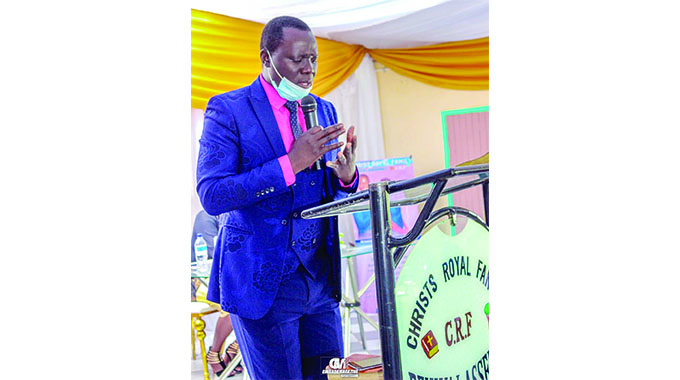Few takers for online church services

Sukulwenkosi Dube-Matutu, Chronicle Reporter
FOLLOWING the ban on gatherings to tighten Covid-19 induced lockdown regulations, churches have resumed conducting virtual services.
The strategy is, however, attracting little response from congregants in some churches due to reasons which include data challenges, no smart phones and lack of interest from church members.
The lockdown, which was first introduced in March last year during the first wave of the pandemic has seen churches lose a number of congregants. Just when churches were starting to recover from the effects of last year’s lockdown they are faced with yet another stumbling block.
Mr Molvin Dube, a Gwanda resident, said he occasionally downloads sermons which were being sent on WhatsApp.
“At our church we now mainly use WhatsApp for worshipping. Our pastors send videos and audios of their sermons for us to listen to. This is really helpful as it’s better that missing out on church completely during the lockdown period. The challenge I face is with downloading all the sermons because data is too expensive. I occasionally download the sermons but not at all times.“

Mr Molvin Dube
“Virtual services are quite different from physical worship as there are a lot of distractions. When I’m in church I can switch off my phone but for virtual services it has to remain on and at times calls and messages will be coming in which ends up being a distraction. That environment of leaving your house and going to church is really ideal for worshipping,” he said.
Ms Lilian Nkomo from Bulawayo said she has never listened to virtual sermons because data is expensive. She said she was gradually losing interest in church because of the Covid-19 lockdown.
Ms Nkomo said she has also never liked the concept of worshipping virtually.
“Our pastor sends long audios of his sermons and I don’t have the data to download them. So each time he sends them I just ignore them.
Even during the lockdown which we had last year I never even listened to a single sermon. This concept of worshipping virtually is just foreign to me. I don’t think I can get accustomed to it. Even if I’m given data I think I will really struggle to listen and follow the sermons from start to end. This lockdown is really disturbing my spirituality.
“Last year it took me sometime to go back to church after they were re-opened. Sitting at home every Sunday and not going to church is slowly becoming usual for me,” she said.
Mr Alfred Moyo from Bulawayo said when churches close their doors during the lockdown worshipping comes to an end for him because he does not have a smart phone. He said all he can do is read the Bible at home and pray until churches re-open.
Reverend Sipho Mhizha, vice chairperson for Brethren in Christ Church (BICC) district which covers 79 branches in Matabeleland said they might have resorted to virtual services but they were not a good option as a lot of people were being left out.
Rev Mhizha who is also the pastor of the BICC Gwanda church said about 50 percent of his congregants did not have smart phones. He said of the 50 percent that had them, most did not have data.
Rev Mhizha said whenever he shared sermons he was forced to limit them to about 10 minutes so that as many people as possible could access them. He said he shared his sermons every Sunday.
“If I record long sermons people will just ignore them. I’m forced to record 10-minute sermons and in the process I leave out a lot of content. The concept of virtual worship doesn’t yield as much results as we would want because the elderly are left out, some youths and the poor who cannot afford smart phones are left out.
“At times virtual services dont have much impact. Some congregants are uplifted just by that session of praise and worship and it gets them in the right mood to consume the word. That atmosphere of fellowship does a lot for people. With virtual worshipping I will share my sermon while someone is busy with their chores and they will just ignore my message,” he said.
Rev Mhizha appealed to Government to reconsider the ban on churches. He said if churches could be allowed to meet with even 30 people, that would be good.
He said the church was a crucial institution that could assist Government by providing psychosocial support to people in order to fight the effects of the Covid-19 pandemic.
Pastor Phathisiwe Dube from the Christ Tabernacle Ministries Church in Gwanda said congregants, mostly in the rural areas, were greatly affected as some of them did not have network coverage.

Pastor Phathisiwe Dube
A majority of churches have resorted to opening groups for services and using the cheaper WhatsApp platform to conduct their virtual services. Church leaders record their sermons on their days of worship and chare with congregants on WhatsApp. Others also use Facebook and Zoom. -@DubeMatutu











Comments